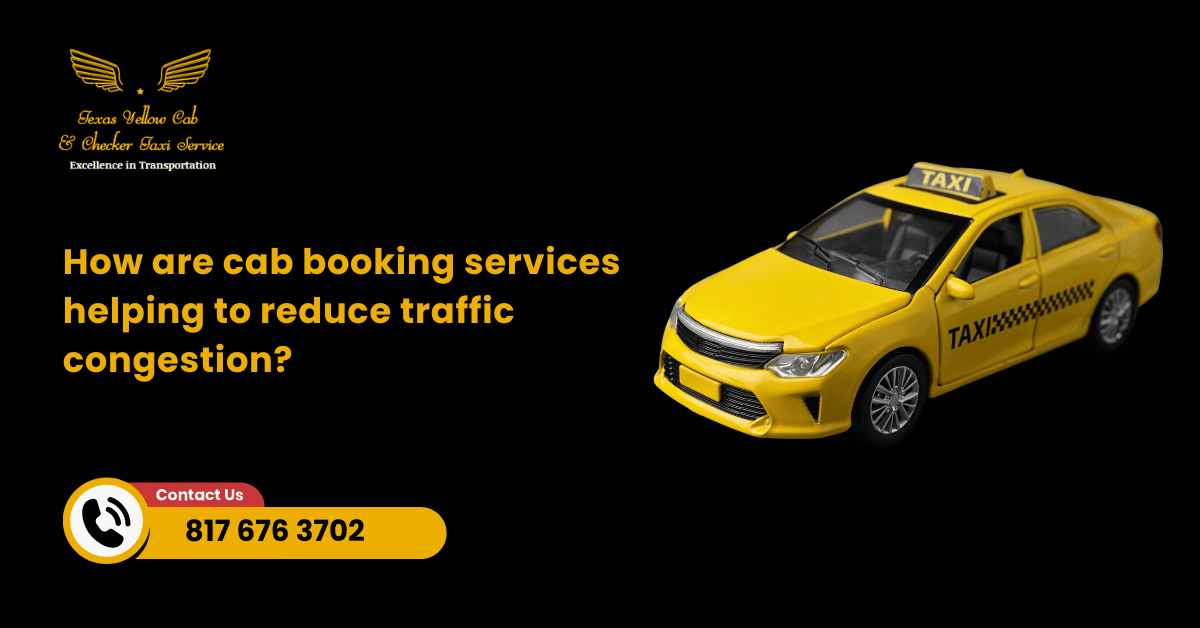Commute times, fuel consumption, and pollution levels are all negatively impacted by traffic congestion, which is a problem in urban places around the world. Despite the fact that there are numerous causes of this issue, using taxi services is a viable option. We can better grasp the value of taxis in city transportation networks and find ways to make the most of them if we learn how they reduce traffic congestion.
How are cab booking services helping ease traffic congestion?
Make the Most of the available road Space
By making better use of available road space, taxi services are a major factor in alleviating traffic congestion. Taxis, in contrast to private vehicles, which typically carry a maximum of two people, regularly transport several passengers all day long. This reduces the demand for vehicles to transport people, which in turn reduces traffic congestion. The use of ride-hailing applications and carpooling services has further increased the capacity of taxis while decreasing the overall number of vehicles required.
Decreased Need of Parking Space
As an added bonus, fewer people will need to park their cars because of taxi services. Drivers circling blocks in search of a parking spot is a known contributor to traffic congestion in crowded urban areas. Contrarily, taxis are always going somewhere, collecting and dropping off riders without requiring permanent parking. This has the dual benefit of reducing traffic congestion and freeing up valuable urban space by reducing the number of automobiles idling and hunting for parking.
Linking Up with Public Transit
When it comes to public transit, taxi services are an essential supplementary option. Their adaptability and user-friendliness make them an attractive choice for first-mile and last-mile connections, connecting people’s homes or places of employment to major transportation hubs. Because they can still depend on cabs for the first or last leg of their journey, more people will use public transportation for the majority of their trip thanks to this integration. Taxis contribute to decreased traffic congestion by encouraging more people to use public transportation, which in turn reduces the number of private vehicles on the road.
Flexible in Response to Current Traffic Conditions
Technology allows modern taxi services, particularly those that use ride-hailing applications, to adjust to traffic circumstances in real-time. By combining GPS with traffic data, cab drivers can plan their trips more efficiently, easing congestion and spreading it out over the road system. Taxi rides are made more efficient with this dynamic routing feature, which also helps to clear traffic jams and enhances overall efficiency.
Promoting Lives Beyond the Cars
More and more people are abandoning or drastically reducing their use of cars because of the widespread availability and ease of taxi services. People are less likely to own cars in cities where there are frequent and affordable taxi services. Fewer cars on the road means less traffic congestion. In addition, the financial strain of automobile ownership can be substantial due to expenses like insurance, fuel, parking, and maintenance; For individuals who only use a car for infrequent trips, taxi services provide a more economical option.
Sustainable Advancements
In an effort to lessen their impact on the environment, several cab companies are implementing green policies that help alleviate traffic congestion. To make city life more sustainable and to back policies that aim to limit car usage, electric and hybrid taxis can be introduced, which reduces the environmental impact of road transport. In addition, several cities have implemented congestion pricing, which encourages the use of taxis rather than private automobiles during rush hour, because these services are sometimes exempt or taxed differently.
You can also read: Reduce Your Travel Stress By Booking DFW Airport Taxi Service
Conclusion
There are many ways in which taxi services can alleviate traffic congestion, making them an essential part of urban transportation systems. One of the biggest problems with modern cities is traffic. Taxis help with this by making the most efficient use of road space, reducing parking needs, enhancing public transportation, responding to real-time traffic conditions, promoting car-free lifestyles, and adopting environmentally friendly innovations. The importance of taxi services in reducing traffic congestion will rise in tandem with the urban population, calling for ongoing innovation and integration with larger transportation plans to meet this challenge.

